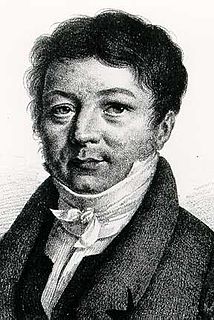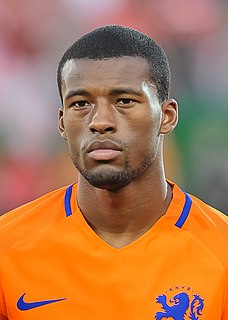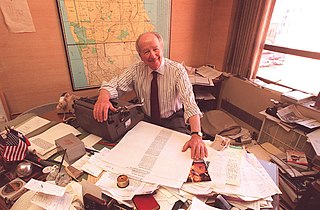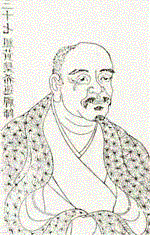A Quote by Edgar Allan Poe
By late accounts from Rotterdam, that city seems to be in a high state of philosophical excitement. Indeed, phenomena have there occurred of a nature so completely unexpected--so entirely novel--so utterly at variance with preconceived opinions--as to leave no doubt on my mind that long ere this all Europe is in an uproar, all physics in a ferment, all reason and astronomy together by the ears.
Related Quotes
What, indeed, is an atheist? He is one who destroys delusions which are harmful to humanity in order to lead men back to nature, to reality, to reason. He is a thinker who, having reflected on the nature of matter, its energy, properties and ways of acting, has no need of idealized powers or imaginary intelligences to explain the phenomena of the universe and the operations of nature.
It seems that every practitioner of physics has had to wonder at some point why mathematics and physics have come to be so closely entwined. Opinions vary on the answer. ..Bertrand Russell acknowledged..'Physics is mathematical not because we know so much about the physical world, but because we know so little.' ..Mathematics may be indispensable to physics, but it obviously does not constitute physics.
I know that certain minds would regard as audacious the idea of relating the laws which preside over the play of our organs to those laws which govern inanimate bodies; but, although novel, this truth is none the less incontestable. To hold that the phenomena of life are entirely distinct from the general phenomena of nature is to commit a grave error, it is to oppose the continued progress of science.
The best kind of travel – the kind I wanted to experience – involves a particular state of mind, in which one is not merely open to the occurrence of the unexpected, but to deep involvement in the unexpected, indeed, open to the possibility of having one’s life changed forever by a chance encounter.
It is the Late city that first defies the land, contradicts Nature in the lines of its silhouette, denies all Nature. It wants to be something different from and higher than Nature. These high-pitched gables, these Baroque cupolas, spires, and pinnacles, neither are, nor desire to be, related with anything in Nature. And then begins the gigantic megalopolis, the city-as-world, which suffers nothing beside itself and sets about annihilating the country picture.
The period of Catholic ascendancy was on the whole one of the most deplorable in the history of the human mind. . . . The spirit that shrinks from enquiry as sinful and deems a state of doubt a state of guilt, is the most enduring disease that can afflict the mind of man. Not till the education of Europe passed from the monasteries to the universities, not till Mohammedan science, and classical free thought, and industrial independence broke the sceptre of the Church, did the intellectual revival of Europe begin.
The nature of the Absolute is neither perceptible nor imperceptible; and with phenomena it is just the same. But to one who has discovered his real nature, how can there be anywhere or anything separate from it?... ...Therefore it is said: 'The perception of a phenomenon IS the perception of the Universal Nature, since phenomena and Mind are one and the same.'
Of all the unexpected qualities of an unexpected universe, the sheer organizing power of animal and plant metabolism is one of the most remarkable. . . . Where it reaches its highest development, in the human mind, we forget it completely. . . . So important does nature regard this unseen combustion . . . that a starving man's brain will be protected to the last while his body is steadily consumed.
{While meditating} I sit quietly and rest in the nature of mind; I don't question or doubt whether I am in the "correct" state or not. There is no effort, only rich understanding, wakefulness, and unshakable certainty. When I am in the nature of mind, the ordinary mind is no longer there. There is no need to sustain or confirm a sense of being: I simply am.






































